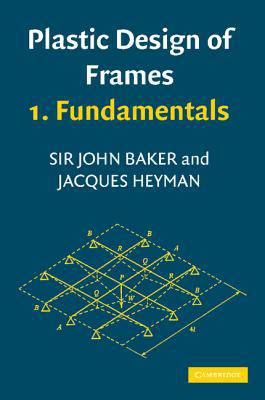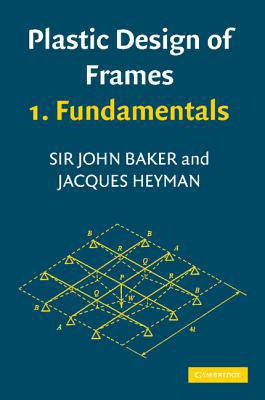
- Retrait gratuit dans votre magasin Club
- 7.000.000 titres dans notre catalogue
- Payer en toute sécurité
- Toujours un magasin près de chez vous
- Retrait gratuit dans votre magasin Club
- 7.000.000 titres dans notre catalogue
- Payer en toute sécurité
- Toujours un magasin près de chez vous
Description
When this volume was first published, plastic theory was the most modern method of structural analysis, and it made possible the direct design of steel frames in a way not available with only elastic methods. It is now recognized that this theory is also fundamental to structural design in materials such as reinforced concrete and aluminium. This is the first volume of a two-volume work by Professors Baker and Heyman that expounds and illustrates the methods of plastic design. Volume 1 gives the elements of the theory and covers the needs of most undergraduates and designers. A special feature of this work is the large number of exercises (140 in all) with answers. Volume 2 deals with advanced topics of theoretical analysis and practical design. The examples and the methods presented herein are extremely valuable to the engineer. The quality of the writing makes Professors Baker and Heyman's book a pleasure to read. Lord Baker (Sir John Fleetwood Baker, 1901-1985) was Professor of Mechanical Sciences and Head of the Department of Engineering at the University of Cambridge from 1943 to 1968. He was a Fellow of the Royal Society. Baker's pioneering research led to the development of the plastic theory of design, originally used for steel frames but now recognized as being valid for many structural materials, such as aluminium and reinforced concrete. Additionally, Baker was responsible for many curriculum innovations at the university and was the author of The Steel Skeleton, a two-volume work. Jacques Heyman is the former Head of the Department of Engineering at the University of Cambridge and the author of ten books, including The Stone Skeleton, Elements of the Theory of Structures, Structural Analysis: A Historical Approach, Elements of Stress Analysis, and the two-volume set Plastic Design of Frames: Volume 1. Fundamentals with Lord Baker and Volume 2. Applications. He is a Fellow of the Society of Antiquaries, the Institution of Civil Engineers, and the Royal Academy of Engineering. He acted as a consulting engineer for a number of English cathedrals and as a member of the Architectural Advisory Panel for Westminster Abbey and of the Cathedrals Fabric Commission for England, and he has served on many British standards committees. The Stone Skeleton won the Choice Outstanding Academic Books Award in 1996.
Spécifications
Parties prenantes
- Auteur(s) :
- Editeur:
Contenu
- Nombre de pages :
- 238
- Langue:
- Anglais
Caractéristiques
- EAN:
- 9780521297783
- Date de parution :
- 30-09-80
- Format:
- Livre broché
- Format numérique:
- Trade paperback (VS)
- Dimensions :
- 150 mm x 226 mm
- Poids :
- 299 g







